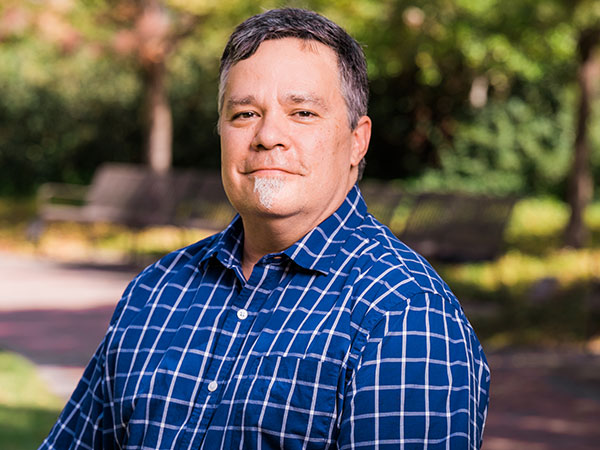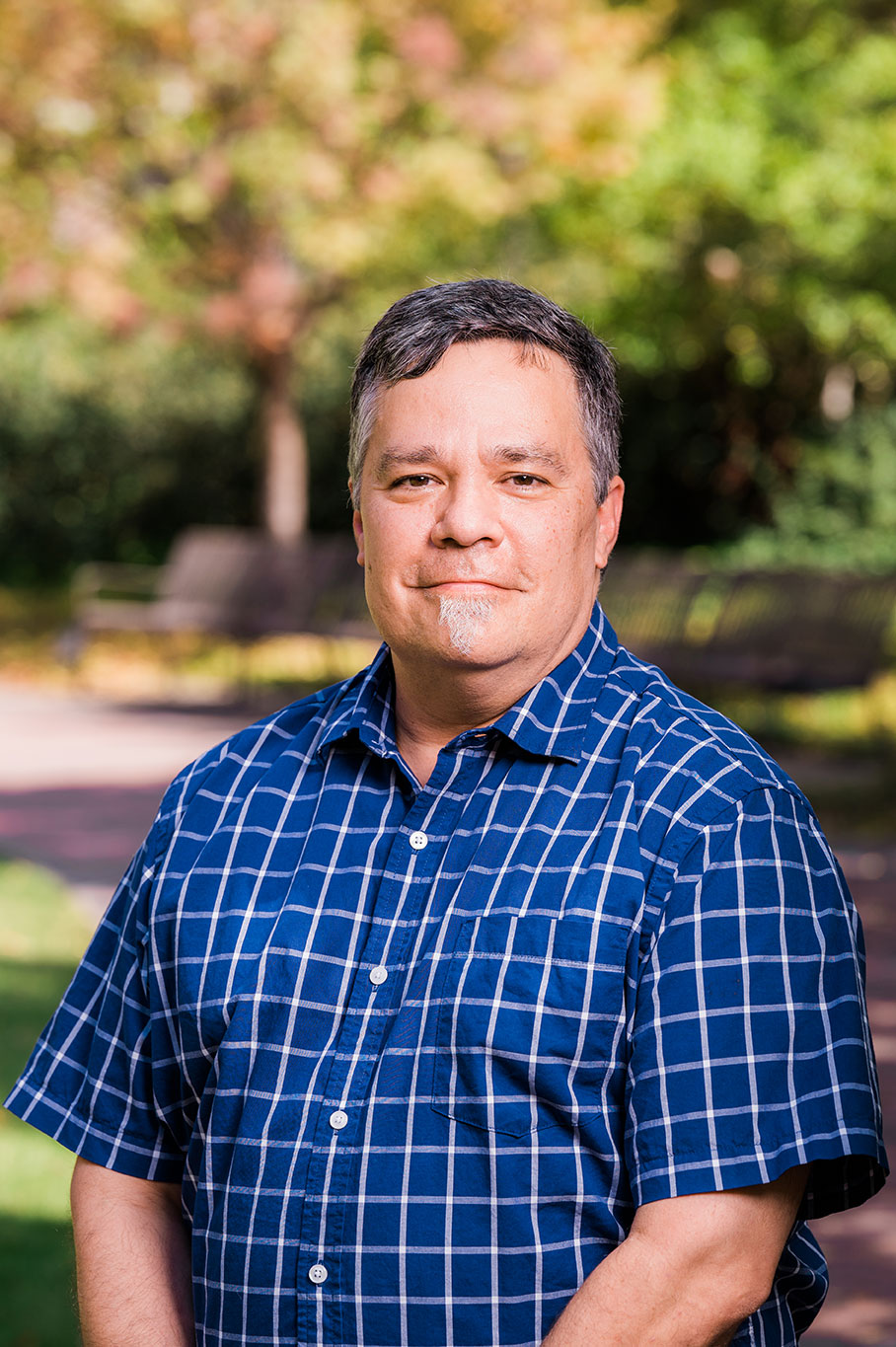 Jean-Claude LeBlancOn July 16, 2022, Jean-Claude LeBlanc, a guest services coordinator for UAB Medicine, was working a Saturday shift at UAB Hospital. In his role—one he’s held since September 2021—LeBlanc is charged with being the face of UAB Medicine, helping patients, families and care partners during their time at the hospital. It’s a job that requires undivided attention, helping sometimes frustrated people in high-stress situations.
Jean-Claude LeBlancOn July 16, 2022, Jean-Claude LeBlanc, a guest services coordinator for UAB Medicine, was working a Saturday shift at UAB Hospital. In his role—one he’s held since September 2021—LeBlanc is charged with being the face of UAB Medicine, helping patients, families and care partners during their time at the hospital. It’s a job that requires undivided attention, helping sometimes frustrated people in high-stress situations.
Suddenly, LeBlanc’s phone began to ring, And it rang. And rang. Three missed calls from his wife. That wasn’t normal. He stepped away and called her back—only to find her panicked. Their house was on fire. She, their son, and one of their dogs had gotten out. The other dog was still inside.
LeBlanc raced home immediately. The fire trucks blocked the road to his neighborhood, and he had to give his name and explain that it was his house that was on fire to even get past. The house was a total loss with the exception of the brick on the outside of the house. Thankfully, everyone—including both LeBlanc family dogs—were safe.
Now what?
LeBlanc’s supervisor encouraged him to reach out to UAB’s Benevolent Fund, specifically its Employee Emergency Assistance Program (EEAP). Through the EEAP, the Benevolent Fund helps UAB employees who need financial assistance because of a crisis, like a fire, a natural disaster, accident, illness and more. The program has been in existence since the fund’s formation in 1984, nearly 40 years ago.
LeBlanc’s supervisor told him that his situation was exactly why the EEAP was created. Within a couple of weeks, LeBlanc had received a check for $1,250. It wouldn’t cover the entirety of the loss, of course, but it allowed LeBlanc to take some stressors off of his plate.
 “As you can imagine, in a house fire, you lose most if not all of your belongings,” he said. “You’re stressed out, trying to find a place for your family to live, food to put on the table—it’s overwhelming, what we were dealing with. Knowing I had this extra money coming in and covering our immediate needs at the time made it less stressful to not have to worry about taking care of the family, in part, because the fund covered that.”
“As you can imagine, in a house fire, you lose most if not all of your belongings,” he said. “You’re stressed out, trying to find a place for your family to live, food to put on the table—it’s overwhelming, what we were dealing with. Knowing I had this extra money coming in and covering our immediate needs at the time made it less stressful to not have to worry about taking care of the family, in part, because the fund covered that.”
LeBlanc said that this money allowed for a bit of relief during an extraordinarily stressful time.
“Imagine losing everything you own—all of the sudden you don’t have a roof over your head, you don’t have beds for your family to sleep in, you have no food at all because it’s all burned up,” he said. “Those things are overwhelming. Again, having that extra money coming in took away one stressor to help relieve our most immediate needs. Ultimately, insurance covered everything, but the last thing you want to worry about when you have a tragedy is money. You have enough to worry about. The fact that there was a fund available just brought a lot of relief.”
LeBlanc said that he and his wife have no extended family in Birmingham—his is in Louisiana, hers is in Arizona. It felt, in this moment, that his UAB family stepped up, he said.
“There was no one else to rely on,” LeBlanc said. “It was a source of comfort that this was available. I’m grateful my supervisor pointed me in the direction to find this fund.”